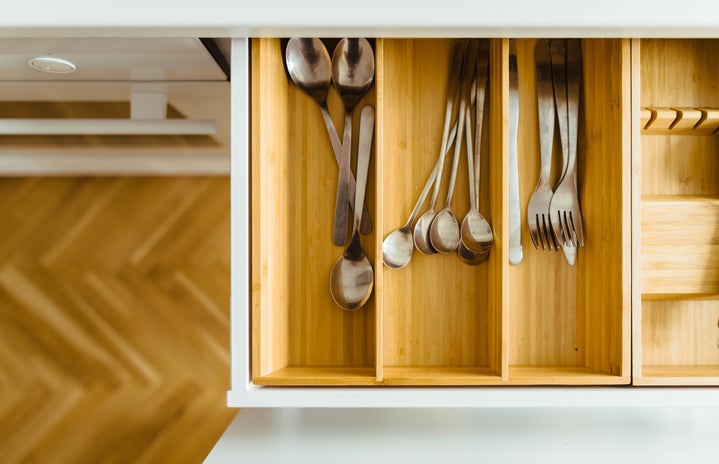Working in food service is hard. Customers are often grumpy and demanding (probably because they’re hungry), you’re always on your feet, and you’re most likely working for minimum wage. During my summer job as a hostess at a busy restaurant, I had to take a lot of crap from customers. Now, I know that Her Campus readers are not your average restaurant customers, but for the sake of venting, here’s my take on how to behave at a restaurant.
1. Don’t seat yourself
Unless there is a sign or a staff member specifically telling you to seat yourself, PLEASE wait to be seated. I honestly don’t know how restaurants with a self-seating policy function, because if everyone sat themselves in our restaurant, it would be chaotic. Where I worked, each server on duty has their own section. As a host, it was my job to ensure that I was rotating through the sections when seating: seat one table in the first section, then the second, then the third, then the first, etc. This way, no one gets overwhelmed with too many new tables all at once. When customers walk right past the “Please wait to be seated” sign and sit down wherever they please, it upsets the system. Worse, the table might not have enough settings, and the guests won’t have any menus to look at. The host is then forced to drop whatever they were doing and take care of YOU. Bonus terrible customer points if you seat yourself at a table that is clearly dirty! You wouldn’t believe the number of times someone has walked into the restaurant and sat down at a table covered in dirty dishes. Trust me—it’s much nicer to sit at a clean table with enough settings and menus.
2. Be patient
I knooooow that you’ve been standing at the door waiting for a table for all of thirty seconds, but please be patient. Sometimes, restaurants can be drastically understaffed. I was often the only hostess working during peak hours on a weekday, so I was the only one clearing, wiping and setting tables, seating guests, and serving drinks. Have a seat, flip through the newspaper, and trust that I will get to you ASAP.
3. Say it the first time
Oh, you need a straw for your glass of water? Why didn’t you ask me when I first took your drink order? Not every restaurant includes straws with drinks by default; if it’s important that you have a straw, please ask for it when you first order your drink. Otherwise, you force me to run around for you when I really have better things to do than fetch straws. This also goes for asking for things one at a time instead of all at once. I once had a customer send me to get syrup, then when I brought that, he asked for a side of butter. When I brought the side of butter, he also asked for hot sauce! It would have been so much quicker if he had asked for all three things at once. So please—just ask the first time.
4. Be polite
Remember that restaurant workers are just like you: they are people with feelings who deserve respect. When you bark at your waitress for bringing you a chicken and avocado omelette instead of the chicken and waffles that you ordered (even though you DEFINITELY said chicken and avocado omelette), you’re being a jerk. Remember the golden rule, kids: treat others as you want to be treated.
5. Stay at your table
Think of your dining experience like being in an airplane: stay in your assigned seat unless you need to use the washroom. I hate when customers sneak up on me when I have my back turned to tell me that they’re ready to order or they want to pay or something. That’s the great thing about restaurants — the staff will come to you! That’s what they do! So unless you have something really important to say, like a modification to your order or the need to leave suddenly, stay seated. Please. We beg you.
6. Tip!
At most restaurants, servers have to contribute a portion of their tips to a pool that is then divided amongst the staff that are not tipped by customers, including the cooks, the dishwashers, and the hosts. At my restaurant, servers must contribute four percent of their daily sales to this tip pool. Now, that is not four percent of their tips—that is four percent of everything that they sell. So if you and your family of eight spend $200 at dinner and don’t tip, not only are you being cheap, but also you just cost your server $8 to serve your table. Fifteen percent is considered to be a fair tip for good, timely service and good food. If you can’t afford $30 on top of your $200 bill, then maybe eat in next time—if you can’t afford to tip, you can’t afford to eat out.
Alright, rant over. Now go forth and be good customers! The staff will appreciate it.

